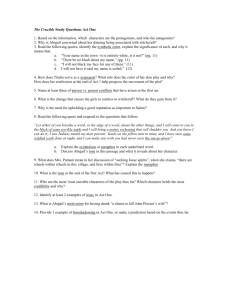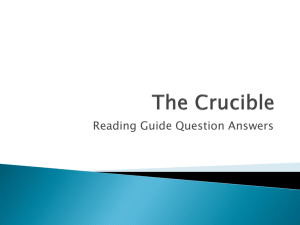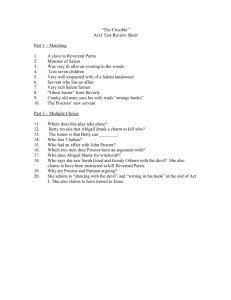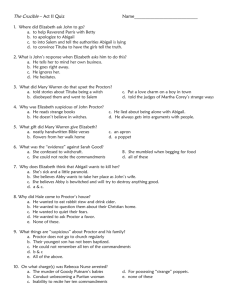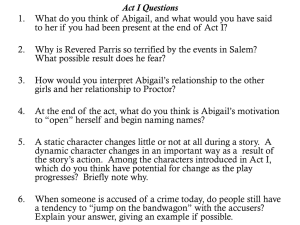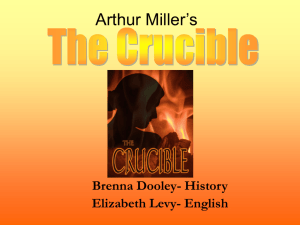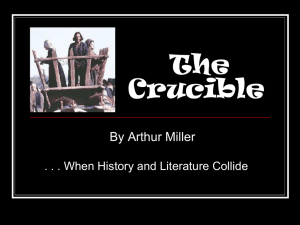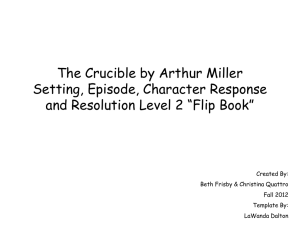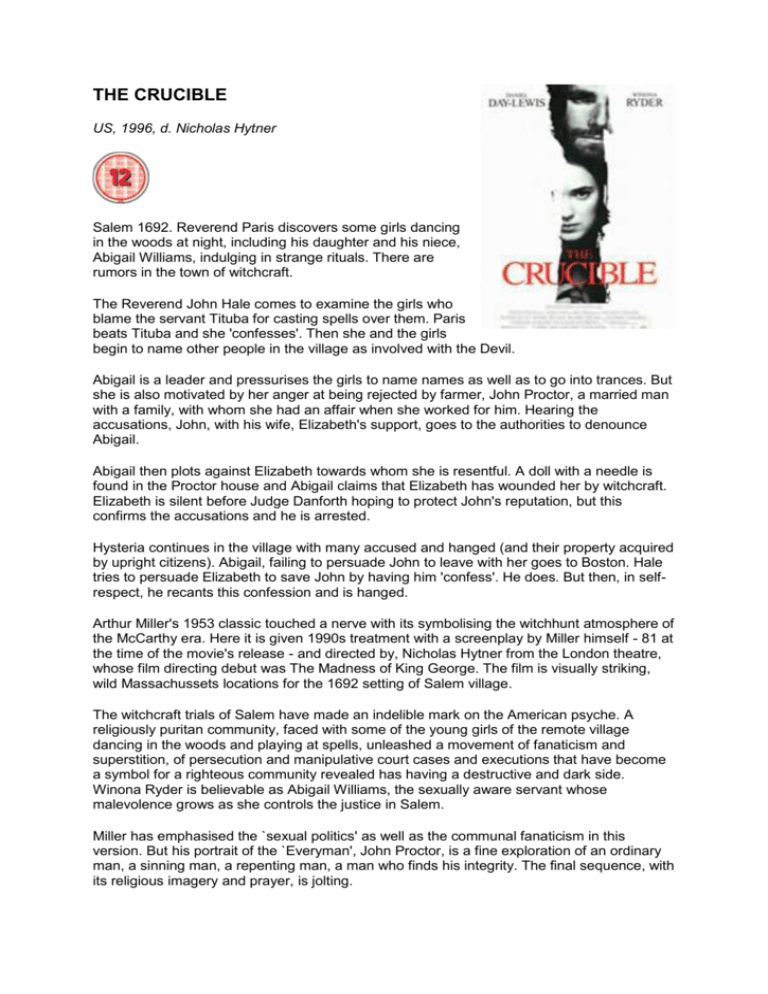
THE CRUCIBLE
US, 1996, d. Nicholas Hytner
Salem 1692. Reverend Paris discovers some girls dancing
in the woods at night, including his daughter and his niece,
Abigail Williams, indulging in strange rituals. There are
rumors in the town of witchcraft.
The Reverend John Hale comes to examine the girls who
blame the servant Tituba for casting spells over them. Paris
beats Tituba and she 'confesses'. Then she and the girls
begin to name other people in the village as involved with the Devil.
Abigail is a leader and pressurises the girls to name names as well as to go into trances. But
she is also motivated by her anger at being rejected by farmer, John Proctor, a married man
with a family, with whom she had an affair when she worked for him. Hearing the
accusations, John, with his wife, Elizabeth's support, goes to the authorities to denounce
Abigail.
Abigail then plots against Elizabeth towards whom she is resentful. A doll with a needle is
found in the Proctor house and Abigail claims that Elizabeth has wounded her by witchcraft.
Elizabeth is silent before Judge Danforth hoping to protect John's reputation, but this
confirms the accusations and he is arrested.
Hysteria continues in the village with many accused and hanged (and their property acquired
by upright citizens). Abigail, failing to persuade John to leave with her goes to Boston. Hale
tries to persuade Elizabeth to save John by having him 'confess'. He does. But then, in selfrespect, he recants this confession and is hanged.
Arthur Miller's 1953 classic touched a nerve with its symbolising the witchhunt atmosphere of
the McCarthy era. Here it is given 1990s treatment with a screenplay by Miller himself - 81 at
the time of the movie's release - and directed by, Nicholas Hytner from the London theatre,
whose film directing debut was The Madness of King George. The film is visually striking,
wild Massachussets locations for the 1692 setting of Salem village.
The witchcraft trials of Salem have made an indelible mark on the American psyche. A
religiously puritan community, faced with some of the young girls of the remote village
dancing in the woods and playing at spells, unleashed a movement of fanaticism and
superstition, of persecution and manipulative court cases and executions that have become
a symbol for a righteous community revealed has having a destructive and dark side.
Winona Ryder is believable as Abigail Williams, the sexually aware servant whose
malevolence grows as she controls the justice in Salem.
Miller has emphasised the `sexual politics' as well as the communal fanaticism in this
version. But his portrait of the `Everyman', John Proctor, is a fine exploration of an ordinary
man, a sinning man, a repenting man, a man who finds his integrity. The final sequence, with
its religious imagery and prayer, is jolting.
Daniel Day Lewis gives yet another different, strong performance as Proctor, matched by
Joan Allen as his wife, who is not the merely shrewish woman of some interpretations. Paul
Scofield is Judge Danforth who embodies the contradictions in Puritan religion and justice.
Both Lewis and Scofield have some powerful speeches in what Hytner calls Arthur Miller's
`sculpted prose'. The Crucible is as relevant as it was in the 1950s and is a warning that true
religious discernment is needed rather than egocentric and fundamentalist righteousness.

